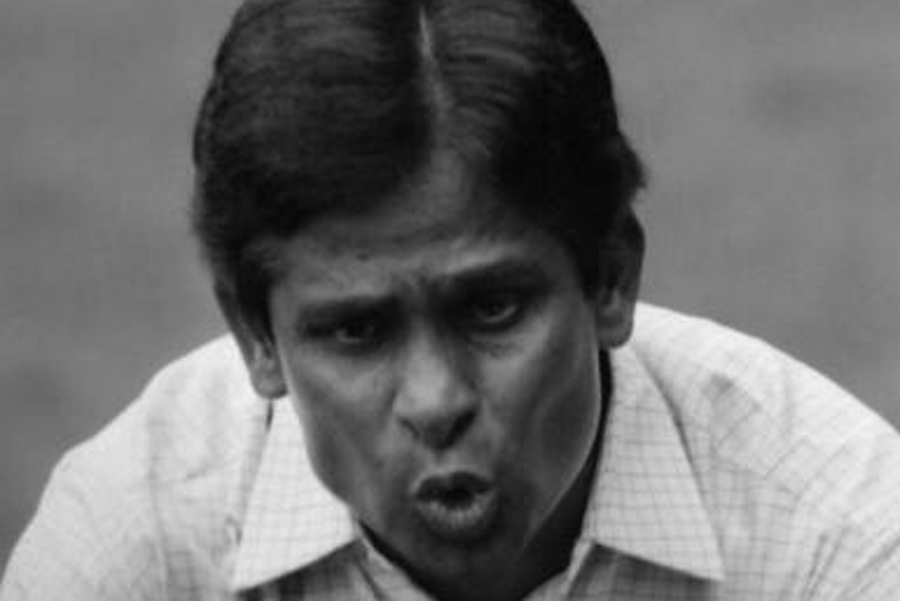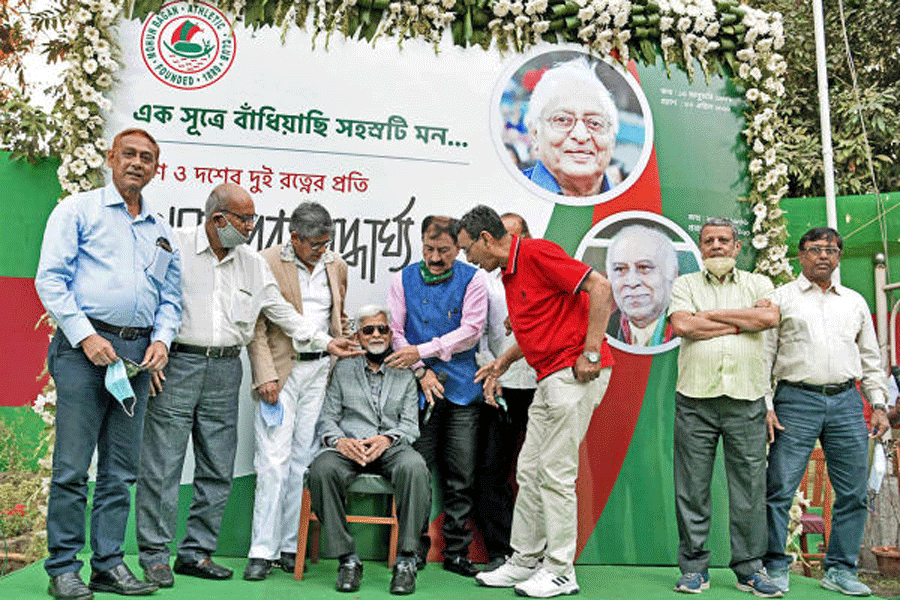Mohammed Habib’s demise on Independence Day at the age of 74 made me sad. Just a month ago I had spoken to his brother and my good friend Mohammed Akbar. I enquired about Habibda’s health and asked Akbar if I could speak to him. Akbar advised me there was no point since Habibda, in his last few years, could hardly recognise anyone. Alzheimer’s disease and Parkinson’s had taken a toll on him.
On Tuesday when I got the news, so many things flooded my memory. Playing with him for India and Mohun Bagan, days we spent in Mohun Bagan’s Royd Street mess, his discipline and dedication... He was not only like a big brother to me but also someone I looked up to.
Habibda was the first footballer whose autograph I wished to have. Such was his name and exploits on the field. The first time I met him was during the 1971 India camp for a tour to Russia. He hardly spoke and was completely focused on the game.
Playing against him was a nightmare for defenders. I was in the Mafatlal Mills football team those days and marking him was very difficult. Some players would avoid defenders if you tackled them hard within the first 10 minutes. Defenders will be relatively relaxed against those players.
But Habibda was a different breed. The more you tackled him hard the more ferocious he became. ‘You keep playing rough football but I will still score,’ he used to taunt rival defenders. Soon it so happened that after a tough tackle defenders would walk up to him and say sorry. Because we used to dread the reaction of an angry Habibda.
He had his limitations as a player. He did not have dribbling skills and his trapping was not clean. He made up for those deficiencies with his vision, tireless running and a nose for goals. He was like an engine and used to play from his own penalty box to the rival’s. He made his opponents’ life miserable. He never used to hold the ball for long and since he had such a good peripheral vision, the moment he got the ball he would play it to a teammate. We just did not know how to keep Habibda on a leash.
In 1976, I signed for Mohun Bagan. Habibda and Akbar also came. Here I got to know him well. We were staying at the Royd Street mess in central Calcutta. The two Hyderabadi brothers were sharing one room and I was in another room.
A devout Muslim, he was a strict disciplinarian. Lights would have to be off by 10pm, otherwise one stern look would banish me to hell.
His preparation for matches was from another world. He used to be in the zone one day before a game. Whether it’s a Derby clash or a league game he would treat every match with equal importance.
Playing against smaller teams always has its problems as they tend to park the bus in front of the goal. So to get the better of them you have to be patient. He used to wait for them to yield an inch and as we all know Habibda would poach a mile.
Before the Derby clash against East Bengal, Habibda and Akbar would ask our cook to make mutton and rice. And then some 40-50 beggars would be called and the two brothers would serve them with that food. This would be repeated the day after the Derby. It was like a ritual.
In our very first year in Bagan, we defeated East Bengal in the local league. Akbar’s 17-second goal is part of our folklore. That win came after seven long years and expectedly the Bagan fans in the city were in a celebratory mood.

Mohammed Habib. File photo
After we returned to our mess — my elder brother had come to stay with me — we thought of having a beer. My brother insisted I take permission from ‘Bade Miyan’ — the name he earned during his stay at East Bengal. I knocked on his door. He called me in and I mumbled if we could have some beer. The pretext was to beat the tiredness.
He glanced at me and said: ‘People had warned me that in Bombay (now Mumbai) you had a reputation of drinking. But in the past few months, what I have seen of you, I thought all those were just rumours. But today you have shown your true colours. Have we won the league yet? No. A lot of things can happen in the last two matches. Instead of celebrating you should think of our upcoming matches.’
It was a lecture I was not expecting. I was so embarrassed that I cursed myself why did we plan to have a beer. And then he did something unthinkable. He gave a Rs 20 note to our caretaker Raju and told him to get a couple of beers. ‘Come through the back door and ensure Pradip’s door is locked while they have beer. And switch off the lights because soon officials and supporters would flock to our mess. Tell them we are sleeping. Do not let anybody enter the mess. I do not want people speaking bad things about Pradip.’ My respect for him grew manifold.
In 1977 when Pele came calling, Habibda was upset we were behaving like fanboys. Pele is a legend but on the field we will be playing against him. We cannot make a beeline to have a photograph with him. If my memory serves me right, I think he did not stand for the photo-op after the match. He scored a goal in the 2-2 draw and earned lavish praise from the ‘Black Pearl’.
That’s Habibda. A fierce competitor who would fight with the last drop of his blood.
Choudhury, a former India international and Mohun Bagan captain, spoke to Angshuman Roy










